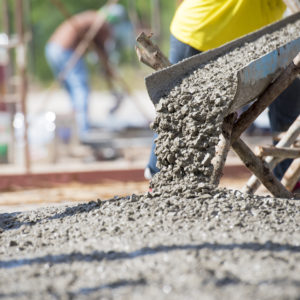As the battle for tax reform shifts to the Senate, lawmakers should consider tweaks that bolster an industrial sector that is fundamental to so many other industries and communities across the United States.
America’s cement manufacturers play a critical role in our economy by supporting hundreds of thousands of jobs and providing the literal foundation for our homes and highways. They make the core ingredient used to ensure roads and buildings are strong, durable and resistant to natural disasters. And they will play an outsized role in revitalizing our nation’s infrastructure.
But right now, the Senate tax reform bill has significant shortfalls — though they are still fixable.
First, proposed limitations on interest deduction could cause major harm to the cement industry. Cement production is capital intensive and subject to cyclical demand driven by many economic factors. Cement facilities are highly regulated, and companies have made tremendous investments in their plants to improve energy efficiency and reduce environmental impacts. Cement plant costs range in the hundreds of millions of dollars and debt financing is an essential tool for funding plant construction, maintenance, expansions and renovations.
Further, the industry is concerned that the Senate bill determines income by using earnings before interest and taxes (EBIT). The globally accepted way to determine income is through its similar measure, EBITDA, earnings before interest, taxes, deductions and amortization. EBITDA includes regular business expenses, deductions and amortization, and it is a better reflection of the financial health of a business. The use of EBIT will not accurately reflect a cement company’s situation and may make it harder to manage operations during difficult economic times by limiting the ability to consider normal business expenses when paying taxes. The House used EBITDA in its bill, which is the better alternative.
The Senate should push for grandfathering current business loans under the interest limitation. As written, it is an unfair change for businesses that have made considerable investments with the expectation that the tax code would remain stable going forward. Addressing this would prevent a retroactive tax increase for decisions businesses made in the past.
The Senate bill does propose an indefinite “carry forward” for loans, which protects manufacturers from losing the deduction in a future downturn. But the legislation should also allow manufacturers to deduct interest on capital improvements, including those required to comply with environmental regulations. These require compliance regardless of how the economy is performing. The interest deduction makes such improvements possible without harming the business or workers.
Beyond the particulars of tax reform provisions, the Senate should use the opportunity to correct the chronic insolvency of the Highway Trust Fund, which pays for roadway upkeep and construction. It is fiscally irresponsible not to increase investments to meet the needs of commerce and help ensure our global competitiveness.
U.S. roads are in a sorry state, earning a near failing “D” grade from the American Society of Civil Engineers. While concrete poured 50 years ago to build the highway system is still in service today, massive work needs to be done to bring the nation’s network of highways up to snuff. That will require a cement industry with the tools to stay strong well into the future.
The right type of tax reform provides those tools.

